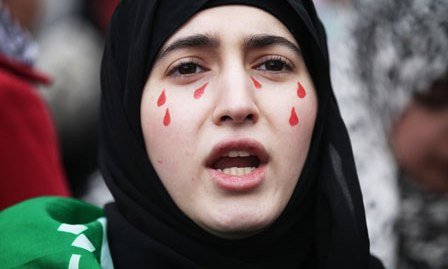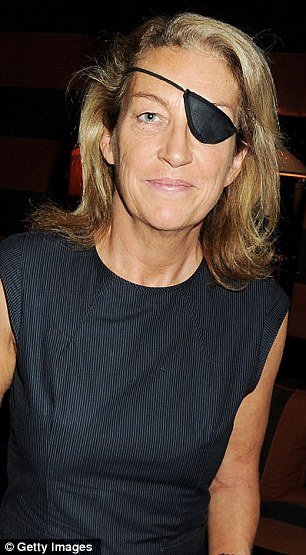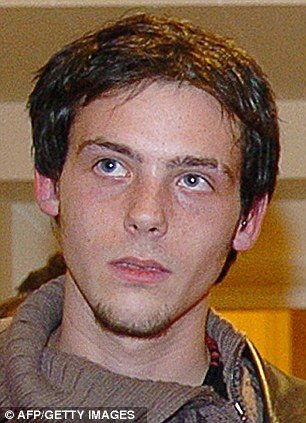Dear friends,

This morning, 4 western journalists are home safe with their families, the echoes of the horror and heroism of Baba Amr still ringing in their ears. Over 50 Syrian activists, supported by Avaaz, volunteered to rescue them and scores of wounded civilians from the Syrian army’s killzone. Many of those incredible activists have not survived the week.
Abu Hanin is one of the heroes. He’s 26, a poet, and when his community needed him, he took the lead in organizing the citizen journalists that Avaaz has supported to help the voices of Syrians reach the world. The last contact with Abu Hanin was on Thursday, as regime troops closed in on his location. He read his last will and testament to the Avaaz team in Beirut, and told us where he had buried the bodies of the two western journalists killed in the shelling. Since then, his neighborhood of Baba Amr has been a black hole, and we still don’t know his fate.
It’s easy to despair when seeing Syria today, but to honour the dead, we must carry forward the hope they died with. As Baba Amr went dark and fears of massacre spread, Syrians took to the streets — yet again — across the country, in a peaceful protest that showed staggering bravery.
Their bravery is our lesson, the gift of the Syrian people to the rest of us. Because in their spirit, in their courage to face the worst darkness our world has to offer, a new world is being born.
And in that new world, the Syrian people are not alone. Millions of us from every nation have stood with them time and time again, right from the beginning of their struggle. Nearly 75,000 of us have donated almost $3 million to fund people-powered movements and deliver high-tech communications equipment to help them tell their story, and enable the Avaaz team to help smuggle in over $2 million worth of medical supplies. We’ve taken millions of online actions to push for action from the Security Council and the Arab League and for sanctions from many countries, and delivered those online campaigns in dozens of stunts, media campaigns and high-level advocacy meetings with top world leaders. Together we’ve helped win many of these battles, including for unprecedented action by the Arab League, and oil sanctions from Europe.
Our team in Beirut has also provided a valuable communications hub for brave and skilled activists to coordinate complex smuggling operations and the rescue of the wounded and the journalists. Avaaz does not direct these activities, but we facilitate, support and advise. We have also established safe houses for activists, and supported the outreach and diplomatic engagement of the Syrian National Council — the opposition movement’s fledgling political representative body. Much of the world’s major media have covered Avaaz’s work to help the Syrian people, including features on BBC, CNN, El Pais, TIME, The Guardian, Der Spiegel, AFP and many more, citing our “central role” in the Syrian peaceful protest movement.
Today, a dozen more nightmares like that visited on the city of Homs are unfolding across Syria. The situation will get worse before it gets better. It will be bloody, and complicated, and as some protesters take up arms to defend themselves, the line between right and wrong will blur. But President Assad’s brutal regime will fall, and there will be peace, and elections, and accountability. The Syrian people simply will not stop until that happens — and it may happen sooner than we all think.
Every expert told us at the beginning that an uprising in Syria was unthinkable. But we sent in satellite communications equipment anyway. Because our community knows something that the experts and cynics don’t — that people power and a new spirit of citizenship are sweeping our world today, and they are fearless, and unstoppable, and will bring hope to the darkest places. Marie Colvin, an American journalist covering the violence in Homs, told Avaaz before she died, “I’m not leaving these people.” And neither will we.
With hope, and admiration for the Syrian people and courageous citizens everywhere,
Ricken, Wissam, Stephanie, Alice, David, Antonia, Will, Sam, Emma, Wen-Hua, Veronique and the whole Avaaz team
P.S. If you want to do more, click here to help keep our lifeline of hope into Syria open:
https://secure.avaaz.org/en/smuggle_hope_into_syria_rb/
Western journalists Marie Colvin and Remi Ochlik have been killed in the Syrian city of Homs when shells hit the building they were staying in, according to opposition activists.
Marie Colvin was an American Sunday Times reporter, and Remi Ochlik, a French photographer.
Several other people were reportedly killed when the shell hit the makeshift media centre in the Baba Amr area.
Opposition-held districts have been under siege by security forces for more than two weeks, leaving hundreds dead.
Activists said more than 40 people died on Tuesday, including Rami al-Sayed, a man who broadcast a live video stream from Homs used by world media.
Rami al-Sayed was fatally wounded by shrapnel during the shelling of Baba Amr. His brother posted a video of his body in a makeshift hospital.
The Red Cross has called on the government and rebels to agree to a daily ceasefire, to allow medical supplies to reach the worst affected areas and get civilians out, but there is no sign yet of this being agreed.

Marie Colvin, Sunday Times reporter
Marie Colvin and Remi Ochlik were reportedly staying in a house in Baba Amr that was being used by activists as a media centre when it was hit by a shell on Wednesday morning.
Rockets were also said to have hit the building’s garden when people tried to flee afterwards.
At least two other foreign journalists were wounded, activists said.
One was named as British freelance photographer Paul Conroy, who was working with Marie Colvin, and Edith Bouvier of the French newspaper, Le Figaro. Edith Bouvier was said to be in a serious condition.

French photojournalist Remi Ochlik
In Paris, French Foreign Minister Alain Juppe said the deaths would be investigated.
“It’s another demonstration of the degradation of the situation in Syria and of a repression that is more and more intolerable,” he told reporters.
“I hope that on Friday at the <<Friends of Syria>> meeting in Tunis we will be able to move towards a peaceful solution of the situation.”
UK Prime Minister David Cameron told parliament: “This is a desperately sad reminder of the risks that journalists take to inform the world of what is happening, and the dreadful events in Syria.”
The editor of the Sunday Times, John Witherow, said the newspaper was doing what it could to recover Marie Colvin’s body and get Paul Conroy to safety.
“Marie was an extraordinary figure in the life of the Sunday Times, driven by a passion to cover wars in the belief that what she did mattered,” a statement said. “She believed profoundly that reporting could curtail the excesses of brutal regimes and make the international community take notice.”
There was no immediate comment from Remi Ochlik’s agency, IP3 Press.
Remi Ochlik, 28, had reported from Haiti and covered many of the recent uprisings in the Arab world.
Marie Colvin, in her 50s, had been a foreign correspondent for the Sunday Times for two decades, and had reported from several war zones. She lost the sight in one eye in Sri Lanka in 2001 after being hit by shrapnel.
On Tuesday, Marie Colvin told the BBC the bombardment of Baba Amr by Syrian government artillery and tanks had been “unrelenting”.
“I watched a little baby die today, absolutely horrific, a two year old – found the shrapnel had gone into the left chest and the doctor said: <<I can’t do anything>>,and his little tummy just kept heaving until he died. That is happening over and over and over.”
“There are 28,000 people in Baba Amr,” she added. “The Syrians will not let them out and are shelling all the civilian areas.”
“There is Free Syrian Army here. They’re very, very lightly armed. People are terrified they will leave.”
Western journalists have mostly been barred from Syria since the uprising against President Bashar al-Assad began last March.
But increasingly, they have risked entering the country undercover, helped by networks of activists, to report from flashpoints.
Last month, the French television journalist, Gilles Jacquier, was killed in Homs while visiting the city on a government-organized trip.
Anthony Shadid, of the New York Times, died of an apparent asthma attack in Syria last week.
In the northern province of Idlib, reports put Tuesday’s death toll there at more than 50.
New videos posted online by activists there suggest opponents of President Assad were the victims of summary executions.
One shows residents of the village of Abdita looking at a row of about a dozen dead bodies laid out on the ground.
There was similar footage from the nearby village of Balshun showing bodies scattered around in an open field.
Some had their hands bound and had died from a bullet wound to the head.
State media said security forces had been operating in the area, pursuing “armed terrorist gangs” and that a number had been killed.
In another video from Idlib, about 500 Syrian troops appear to announce their defection from the army to join the Free Syrian Army. The footage cannot be independently confirmed.
[youtube nySrTV_vviY]



